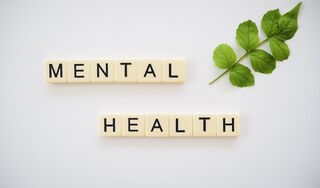Health
How COVID-19 Changed the Landscape of Mental Health Care
The steps to take towards a stronger future for our U.S. health care system.
Posted August 2, 2021 Reviewed by Davia Sills
Key points
- The negative consequences of the COVID-19 pandemic are far-reaching, especially regarding mental health.
- The COVID-19 pandemic has significantly increased rates of clinical anxiety and depression in the U.S.
- Reduced stigma and improved access to mental health care are positive trends despite the pandemic-related mental health burden.

2020 was a year like no other for all Americans, given the impact of the global pandemic. We faced a public health crisis, an economic crisis, and a civil rights crisis at the same time—and all amidst the backdrop of a highly contentious political election, no less.
The coronavirus pandemic alone changed almost every facet of life for tens of millions of Americans. For nearly two months, most Americans lived under stay-at-home orders meant to slow the spread of the coronavirus. The pandemic alone took a mental and emotional toll on all of us. Add in scenes of police brutality and civil unrest being played out on the media on a daily basis, as well as economic instability and food insecurity for many in our country, mental stress and anxiety become front and center for many.
Here are just a few of the stressors unique to that period:
- Increased social isolation and loneliness due to the stay-at-home orders and shift to remote working
- Skyrocketing rates of unemployment and the economic downturn (recessions are historically associated with increased rates of suicide)
- Mass grief due to coronavirus deaths, especially without funerals and other similar rites to process the transitions
- Trauma and trauma triggers for communities of color given the focus on social justice
- Possible neurological and psychiatric sequelae due to the so-called "long-haul" persistent symptoms of COVID-19
Given this confluence of stressors, there was an effective widening of the net of groups at-risk for mental health conditions. In fact, data showed that nearly one-third of U.S. adults reported symptoms of clinical anxiety and depression related to this public health crisis and adjacent crises (as opposed to pre-COVID levels around 10 to 20 percent).
As psychiatrists and advocates for optimized mental and emotional health for all, we wanted to highlight a few trends that emerged during COVID that we believe actually advance the state of affairs for a stronger mental health system in America.
1. Reduced stigma against mental health
The pandemic brought into full relief the emotional fragility in all of us. With the rapid changes and high degree of uncertainty causing stress in all of us, many more people became more keenly aware of how important it is to protect one’s mental health. More and more people were willing to engage in authentic conversations about how they were holding up, and more people accessed therapy.
2. Increased penetration of telepsychiatry and teletherapy
While telemedicine has been on the rise for many years, the pandemic really pushed the limits of this emerging modality. No field in medicine saw this dramatic a shift in receiving care than the field of mental health. Studies are showing that this trend will likely persist in the field of mental health, which widens access for many more.
3. Wider acceptance of self-care principles
It became clearer to all that the back-to-basics approach to self-care was necessary to preserve emotional wellness through this period. This included exercise, healthy and fresh food intake, staying hydrated, mindfulness/meditation, adequate sleep, healthy relationships and boundaries, and work-life balance.
We believe that now is a time to capitalize on these trends to carry our mental health system forward. We would love to see more funding directed towards the improvement of our behavioral health care treatment infrastructure for all, especially those living with major mental illness and those impacted by homelessness. We continue to be in full support of the principles of mental health parity and behavioral health and physical health integration.


